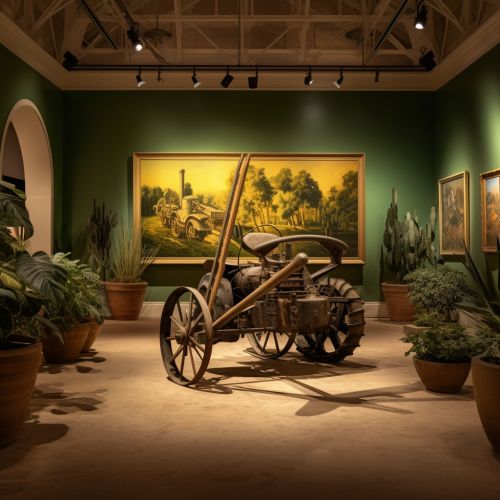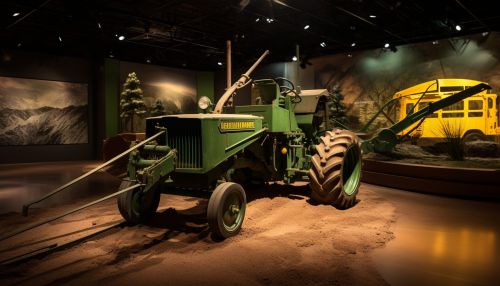John Deere
Early Life and Founding of John Deere
John Deere was born on February 7, 1804, in Rutland, Vermont. He was the third son of William Rinold Deere, a tailor, and Sarah Yates Deere. His father disappeared on a voyage to England when John was just four years old, leaving the family in poverty. Despite these hardships, Deere managed to get a basic education before he began an apprenticeship with Captain Benjamin Lawrence, a successful blacksmith, in Middlebury, Vermont, at the age of 17.
In 1836, due to economic difficulties and a failing blacksmith business, Deere decided to move west to Grand Detour, Illinois. Here, he set up a blacksmith shop and quickly noticed the problems that local farmers were having with their iron plows. The heavy, sticky prairie soil clung to the plows and had to be scraped off frequently. Seeing an opportunity, Deere began experimenting with steel plow designs, and by 1837, he had developed a polished steel plow that sliced through the heavy soil much more efficiently. This was the beginning of the John Deere Company.


The John Deere Company
The John Deere Company, originally named 'Deere & Company', was officially founded in 1837 in Grand Detour, Illinois. The company initially manufactured polished steel plows, which were revolutionary at the time. These plows were much more efficient at tilling the heavy Midwestern soil, making the company an instant success. By 1842, Deere was able to produce 100 plows per year, and by 1855, the company was producing over 10,000 plows annually.
In 1858, Deere transferred the business to his son, Charles Deere, who continued to expand the company. Under Charles' leadership, the company began to diversify its product line, adding wagons, buggies, and other agricultural equipment to its offerings. The company also began to expand geographically, opening factories in other parts of the United States and eventually overseas.
The John Deere Company has continued to grow and innovate throughout its history. Today, it is one of the largest manufacturers of agricultural machinery in the world, and its products are sold in over 160 countries. The company also produces a wide range of other equipment, including construction machinery, forestry equipment, and diesel engines.
Innovations and Impact
Throughout its history, the John Deere Company has been known for its innovations in agricultural machinery. The polished steel plow, the company's first product, was a revolutionary development that greatly improved the efficiency of farming in the Midwest. This was followed by many other innovations, including the first commercially successful self-scouring steel plow, the first tractor with a fully enclosed cab, and the first diesel tractor.
The company's innovations have had a significant impact on agriculture and farming practices worldwide. By making farming more efficient, the John Deere Company has helped to increase agricultural productivity, reduce labor requirements, and improve the quality of life for farmers.
In addition to its contributions to agriculture, the John Deere Company has also had a significant impact on the communities in which it operates. The company has been a major employer in many communities, and it has contributed to economic development through its investments in factories and other facilities.
Legacy and Influence
John Deere's legacy extends beyond the company that bears his name. His innovations in agricultural machinery have had a profound impact on farming and rural life, not only in the United States but around the world. His commitment to quality and innovation continues to be a guiding principle for the company.
The influence of the John Deere Company can be seen in many areas. The company's distinctive green and yellow tractors have become a symbol of American farming. The company's commitment to innovation and quality has set a standard for the agricultural machinery industry. And the company's contributions to the communities in which it operates have made it a valued corporate citizen.
